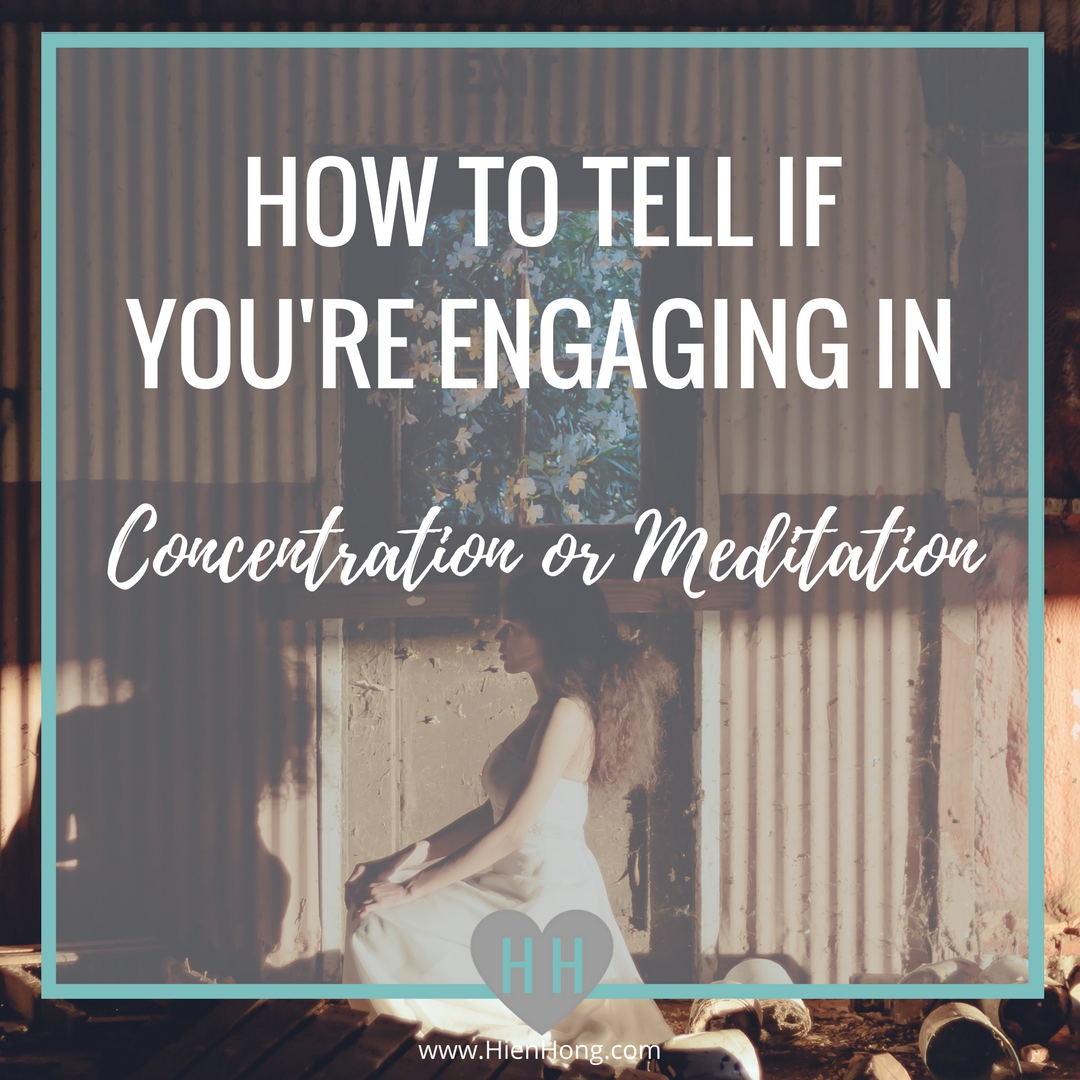How to Tell if you're Engaging in Concentration or Meditation
/For many beginner students, meditation can seem intimidating for a variety of reasons.
Do I have to be able to sit completely still for an hour? Do I have to be able to not think -- about anything -- at all? Do I have to know funky breathing techniques? How do I keep from thinking? Or feeling? Or wanting to stand up? How do I know if I'm doing it right? is it just concentration, or am I meditating?
If nobody has told you yet, I'll gladly deliver the news.
Meditation is a practice, which means you don't have to be perfect. Actually, there's no perfect way to meditate. If you tried it, you did it right.
But a common concern for new meditators is whether they are actually engaging in meditation, or just forcing concentration.
You may have heard meditation teachers or recordings talk about returning to the breath, or repeating a mantra. If you're focused on breathing or a mantra throughout the session, is it really meditation?
The truth is, you're probably doing both concentration and meditation. Recognizing the differences may deepen your practice and insight. But the two are largely related, for good reason.
To help illustrate the theme, I will be using a light analogy. Notice the spark on the left and the picture on the right, representing illumination. One is concentration. The other is meditation.
Concentration
Concentration is focusing on a single object.
It's typically how you'd start a meditation session.
Your meditation teacher may suggest noticing your breath, guide you through a body scan or visualization, or simply asking you to bring your focus onto something.
Whatever it may be, concentration is that initial starting point that allows you to go from thinking about your to do list or what you said yesterday, to perhaps realizing "Wow, my jaw is tense and I feel tired."
Concentration allows you to hone your mind and asks you to be mindful rather than a full mind.
Concentration is like walking into a dark room and turning on the flashlight and seeing whatever the light lands on. (An analogy I learned from my teacher during my training.)
Meditation
Meditation is the state you arrive after or during concentration.
Meditation is the awareness that you're noticing whatever is going through your mind.
Your meditation teacher may help you with finding awareness by giving reminders like "If you notice your mind wandering, come back to your breath (a single object for concentration)" or "If you notice any thoughts or emotions, allow it to come and go."
Meditation is what happens when you're able to find a state of mental awareness, when you're actually mindful of your full mind.
The internal dialogue is like "I feel hungry. I wonder what I'll eat later... Oh, this is thinking and planning... I feel sad about what happened yesterday... Oh, this is an emotion... I'm getting distracted, I'll focus on my breath now... Inhale... Exhale..."
Coming back to the analogy of walking into a dark room and turning on a flashlight, meditation would be like turning on a light switch and seeing the whole room.
Meditation is full illumination. Concentration is a spark.
THE CONNECTION to the eight limbs
In the eight limbs of yoga, Concentration (Dharana) precedes Meditation (Dhyana).
Although they are interconnected, the fact they're separated speaks to how they are meant to be distinguished.
After Dharana and Dhyana it's Samadhi, or a sense of spiritual ecstasy or enlightenment. While it may not occur immediately or regularly, noticing a sense of Samadhi and one-ness is definitely possible while meditating. ;)
In the simplest terms: Meditation is noticing what else is there besides your Concentration.
If I'm focusing on my breath, meditation is when I notice that random Taylor Swift song wanting to take my attention away. (Yes, for some reason T-Swift lyrics always find me while I'm practicing meditation.)
Good luck concentrating and meditating!



